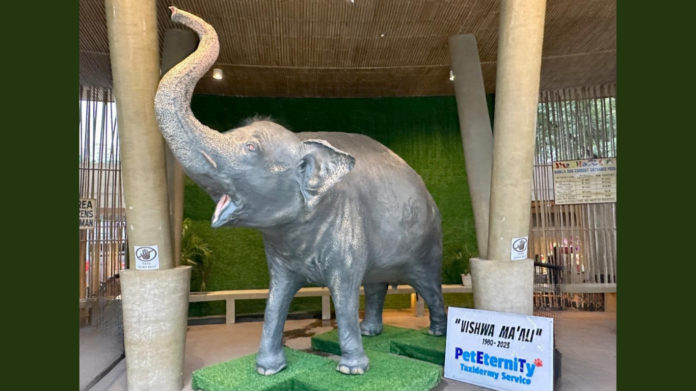For more than 40 years, Filipinos were enamored with Mali, the only elephant in the Manila Zoo. She was given as a gift by Sri Lanka in 1977 and became the first and only Asian elephant to live in the Philippines.
However, Mali’s presence ignited moral issues associated with the captive holding of wild animals. Her tale serves as a sobering reminder of the price of human amusement, as well as one of endurance and loneliness.
Animal rights advocates referred to Mali as the “world’s saddest elephant,” and with good cause. She spent years living in isolation in a concrete cage, far from the lush meadows where animals of her kind naturally thrive. She had severe foot issues, a typical injury of captive elephants caused by grazing on hard surfaces. The People for the Ethical Treatment of Animals (PETA) and other advocacy organizations appealed for Mali to be moved to a sanctuary, but their requests fell on deaf ears.
Mali’s existence is a tragic example of what happens when an animal that is born to live freely is held captive, while her isolation and deteriorating health become a symbol of systemic neglect.
Since its December 2024 debut, Mali’s taxidermy exhibit has drawn a lot of criticism. Actress and animal rights activist Nadine Lustre is among those who contend that this encouraged exploitation. Critics called for a decent burial in place of the insulting exhibition; Lustre voiced her disappointment, stating that Mali should not be objectified further but rather be granted peace.
Manila Zoo officials said that the taxidermy was meant to commemorate Mali’s legacy and educate tourists in spite of the criticism. The veterinary team regarded the preservation procedure as a major endeavor, even if it was difficult due to her declining health.
This controversy emphasizes the ongoing issue regarding animal care and ethical memorialization. Proponents stress that rather than being another attraction, Mali’s story should motivate improved care for animals in captivity. They demand more humane treatment and stricter zoo regulations.
Let Mali’s tale catalyze awareness and change. Whether speaking out for animal rights, volunteering, or simply thinking about our involvement in their lives, may Mali’s legacy inspire collective compassion.



